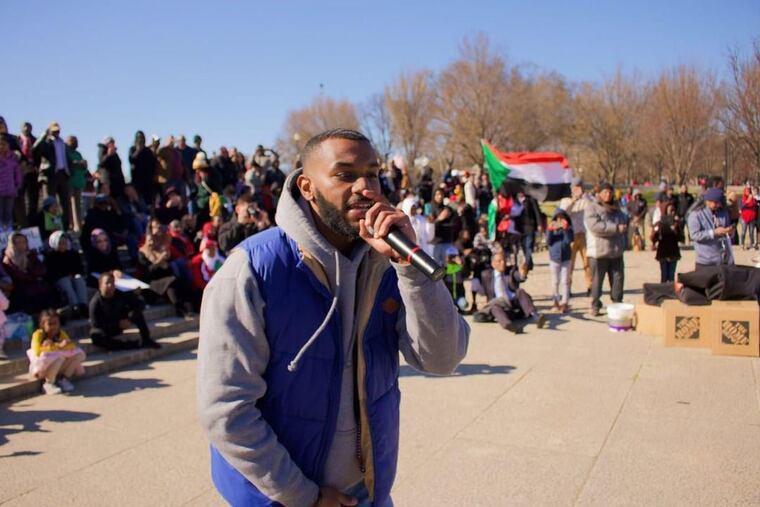This weekend’s Peace in the East Festival -- PIE -- aims to unify millennials whose parents emigrated from East Africa
The Selam Committee, whose members are young East African Americans, are presenting Peace in the East, at the Spruce Street Harbor Park on Saturday.

Growing up in West Philadelphia, Liz Massele had to navigate a world where her classmates knew little about her heritage and background as the daughter of Ethiopian immigrants.
“It was difficult when I was younger, as a child, trying to find your identity,” said Massele, 27, a communications professional and University of Pennsylvania graduate. Some people would say she was not really black, because she was Ethiopian. Others didn’t even know where Ethiopia was.
“I got teased when I was younger, because the only media representation of Ethiopia was that of famine,” she said. She remembers bitterly how on South Park, there was a character known as “Starving Marvin” who was supposed to be an Ethiopian child. He was very skinny and looked like an alien.
“It was a very disrespectful and horrible representation,” she recalled.
A weekend festival celebrates how much progress has been made. Young East African Americans like herself, those born or raised in the United States with parents from Ethiopia, Eritrea, and Sudan, are presenting Peace in the East (PIE) at the Spruce Street Harbor Park, 301 S. Columbus Blvd.
The gathering is sponsored by the Selam Committee, which seeks to help her generation of East African immigrants find common ground with black Americans who have grown up in Philadelphia.
The younger generation sees the world differently than their immigrant parents, many of whom endured war and political oppression at home. Yet they also see the world differently from black Americans whose parents grew up in the United States and don’t always understand the immigrant experience.
Through PIE Fest, she said, the Selam group hopes to bridge cultural and generational gaps. Massele said members of the Selam Committee attended last weekend’s Odunde Festival, which is centered on West African traditions, to show unity and support.
“This is the inaugural festival,” she said. The Selam Committee was formed in February.
Organizers are calling the festival “Peace in the East” to celebrate the accord that Ethiopian Prime Minister Abiy Ahmed and Eritrean President Isaias Afwerki signed last July, bolstered by a peace deal brokered in Saudi Arabia last September.
“We want to celebrate that newfound peace and also bring awareness to the situation in Sudan,” where at least 100 people have been killed by a militia wing of the army, Massele said.
In addition to food and entertainment, there will be panel discussions and mental health experts to talk about the trauma that many immigrants suffer from escaping war or imprisonment for their political actions.
“We will also have a moment of silence for those lost in Sudan and the Ethiopian plane crash,” she said. G. Salih, a musician of Sudanese descent, is expected to address the protests in Sudan before his performance, she said.
The weekend begins with a 9 p.m. Friday concert by singer Mus Matos, who is of Eritrean descent, Salih, and more at the Lounge, 1621 Cecil B. Moore Avenue. The PIE Festival starts at 11 a.m. the next day at Spruce Street Harbor Park, and is free to the public. Activities end at 6 p.m. Two hours later, there is another musical concert featuring artists from all three countries starting at 8 p.m. Saturday at Union Transfer, 1026 Spring Garden St.
And there will be a farewell cookout from noon to 5 p.m. Sunday at Greensgrow West, 5123 Baltimore Ave.